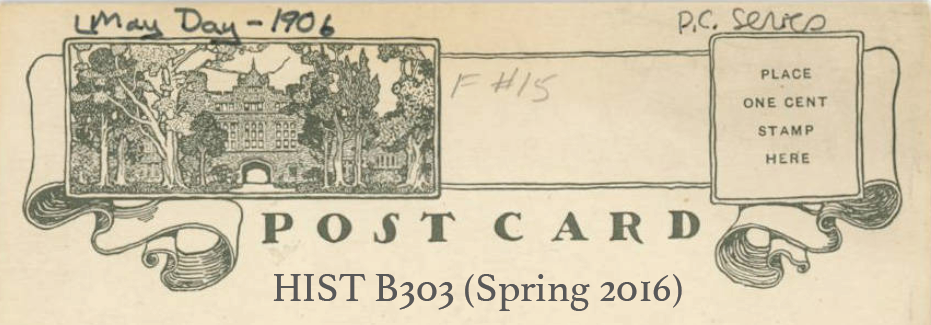While I agreed with much of Erika Doss’ “Memorial Mania”, I was frustrated at her discussion of the Franklin Delano Roosevelt Monument, specifically her dismissal of disability activists’ demands that the monument publicly acknowledge Roosevelt’s disability by showing him using a wheelchair. Although Doss seemed, in other sections, sensitive to reasons why different marginalized groups might demand representation, she seemed outright dismissive of the disability activists who advocated for a statue of Roosevelt using a wheelchair, saying things like, “disability activists… insisted that Roosevelt’s memorial more blatantly commemorate their own interests” (35-36), and quoting another scholar as saying, “Yet, Schudson cautions, rights consciousness also “legitimates individual and group egoism and emphasizes at every turn the individual, self-gratification over self-discipline, the economic over the moral, the short term over the long term, the personal over the social”” (37). I agree that demands for representation of individuals from different groups are rooted in identity politics and fail to address structural discrimination or create radical change–as Mason B. Williams says in “The Crumbling Monuments of the Age of Marble”, “Discussing individuals and (where warranted) removing names is good—but it is just a start. The crucial next step is to rethink and reinvent the ways the nation commemorates.” However, being so completely dismissive of a marginalized group’s demand for representation, and going so far as to imply that it’s self-gratifying, ignores the importance of representation for communities so often denied it. Representation is a form of individual empowerment for those who need to be able to look at the world and see people like them represented and celebrated, and a way of challenging larger discourses that invisibilize the experiences of marginalized peoples. In some cases, representation, by raising awareness of a marginalized group’s existence and breaking down stereotypes about them, can even start conversations that lead to more radical change in the future. Of course how representation is done matters, and representation alone is not the answer. But dismissing representation of marginalized groups as a form of self-gratification looks quite similar to arguing that only the voices and narratives of the privileged and powerful deserve to be heard, and I can’t see how that’s a way toward radical change at all.
History in Public: Race, Gender, and Campus Memory
Professor Monica L. Mercado | Bryn Mawr College Department of History (Spring 2016)

Wow Kelsey, thanks for pointing this out! I completely missed it! When I was reading this section I thought more about how FDR felt about his disability, and how he wanted to hide it. I don’t know exactly how the monument displays his disability, but just from this article and what I know about disability issues in general, I think the demands of the activists created the perfect opportunity to discuss how we perceive disabilities and people with disabilities. It’s such a shame Doss framed it this way!